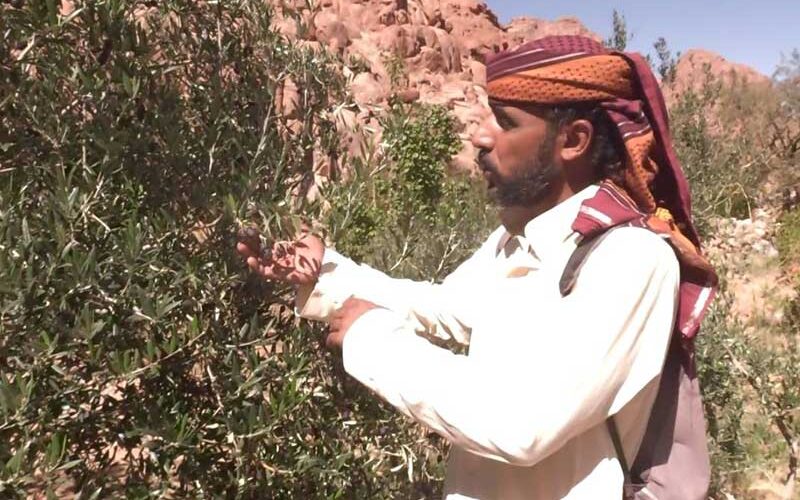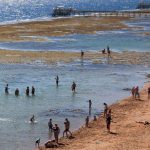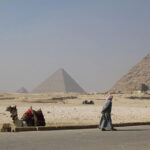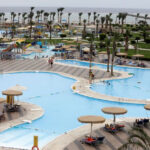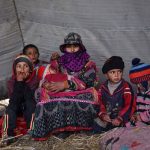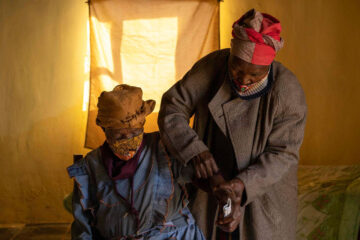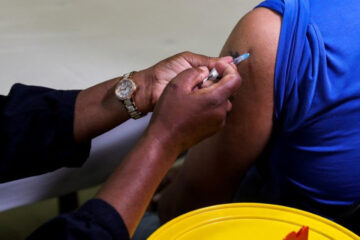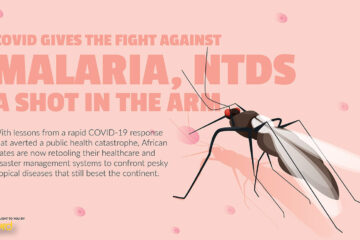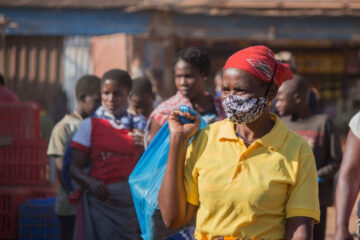MENNA A. FAROUK
FOR years, Um Saad has been urging fellow Bedouins to tend their orchards and vegetable patches in the mountains of Egypt’s South Sinai. It took a pandemic for them to listen to her.
Tourism, her community’s main source of income, has been wobbly for years – rattled by militant attacks and political unrest. But COVID-19 has decimated the sector, encouraging many Bedouins to go back to the livelihoods of their ancestors.
“This is one good thing about the coronavirus,” said Um Saad, 75, sitting outside the house where she has lived for decades near the town of Saint Catherine, occasionally hosting foreign visitors hiking in the mountainous region.
“For me, agriculture and tourism have always been in parallel. But agriculture is the major source of sustaining life here,” she told the Thomson Reuters Foundation.
Since the pandemic brought tourism to a virtual standstill in March, hundreds of Bedouins have returned to their plots in the mountains of Saint Catherine, which have often served as a haven in times of political upheaval and war.
“We experienced that also during the January 25 Revolution in 2011 and the Iraqi-Kuwaiti war in 1992,” said Ahmed Farhan, a Bedouin in his late 30s, who arrived back in the region in May after losing his job as a tour guide.
The revolution that toppled late President Hosni Mubarak nine years ago, and the 2015 bombing of a Russian passenger jet, dealt sharp blows to Egyptian tourism from which it had only just recovered when the coronavirus outbreak hit.
Gathering crops from the newly replanted garden tended by his father before him, Farhan said he produces enough to feed himself and sell the surplus. He no longer wants to return to his former work taking tourists to Mount Sinai.
“This life is the best. I’m eating healthy food, drinking clean water from the wells here and also making money out of the crops that I grow. What more could I need?” said Farhan, who grows grapes, honey, almonds and vegetables.

SURVIVAL STRATEGY
Tourism accounts for up to 15% of Egypt’s gross domestic product (GDP) and officials have said the country was losing about $1 billion each month since COVID-19 shut borders and airports.
One of Egypt’s biggest tourism draws, alongside historic sites such as Luxor and the Pyramids of Giza, are the sandy beaches of the South Sinai – home to the Sharm el-Sheikh resort.
But visitor numbers in the city have been just 10% of last year’s levels in recent months, officials said in September, and thousands of staff have been laid off due to lockdown closures and subsequent social distancing measures.
The bustle of Sharm el-Sheikh and other coastal resorts is a sharp contrast to life in and around Saint Catherine, which lies 1,600 metres (5,200 feet) above sea-level.
In the highlands around the town, Bedouin tribes have a long history of small-scale farming and goat herding before a boom in package tourism in the 1980s led many to abandon their ancestral land and farming traditions.
Different Bedouin tribes live across the Sinai, with traditional livelihoods tied to the region’s diverse climate and landscape, whether raising camels in the desert to fishing along the coast.
They are known for being expert at adapting to the region’s harsh conditions and other challenges, said Ben Hoffler, co-founder of the Sinai Trail, a hiking tourism project.
“The Bedouin economy is a diverse one. It’s part of their economic survival strategy. If one sector of the economy goes down they revive other sectors until things improve,” he said.

SUSTAINABLE
Before the 2011 revolution scared visitors away, tourism revenues were at record highs in Egypt, bringing in $13 billion per year. The industry had started to rebound in the last two years.
Many Bedouins will likely return to tourism when the pandemic passes, Hoffler said. But at the same time, the crisis has reminded many younger Bedouins of the need to keep their options open.
“The capacity to live from the land is something that sets the Bedouin apart and its economic advantages – and the extra safety it gives – is more clear than ever in a pandemic,” he added.
South Sinai’s governorate launched a series of agricultural projects in August in Saint Catherine to support Bedouin communities, including plans to build greenhouses, training programmes and the distribution of olive seedlings.
In Cairo, the national government has earmarked billions of dollars for developmental projects in the Sinai to expand agricultural lands and make better use of water.
But Sheikh Saad, 52, who has come back to his orchard after working for 30 years as a tour guide in Mount Sinai, said many Bedouins would not need much persuasion to continue looking after their fruit trees and vegetable gardens.
“More and more Bedouins will start to look for resources in the mountains,” he said.
“They have realized that taking care of these resources is sustainable unlike tourism which can dwindle at any time.” – Thomson Reuters Foundation.

